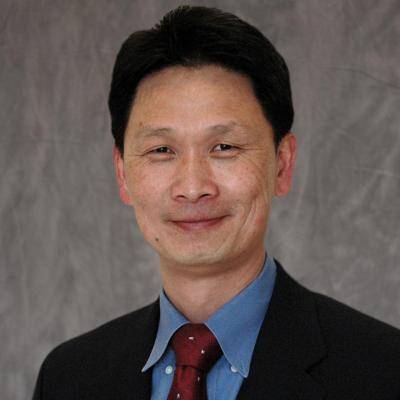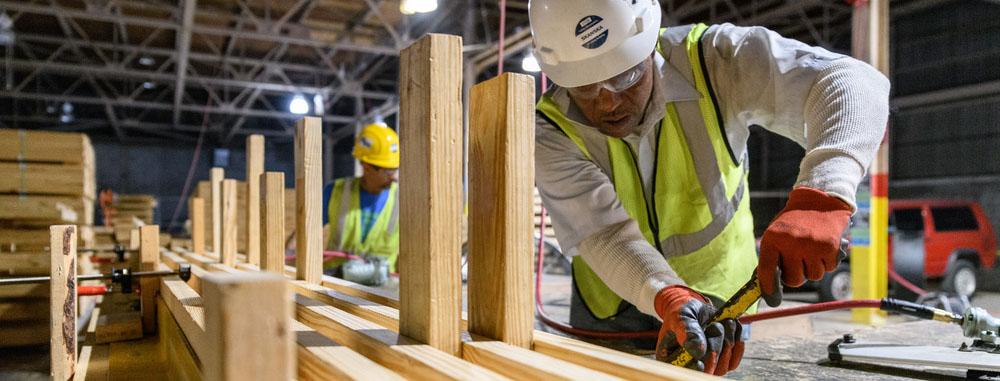
About Construction and Infrastructure Systems Engineering
The Construction and Infrastructure Systems Engineering program is focused on driving technological change and preparing students for successful careers in the architecture/engineering/construction industry.
Located in the heart of Atlanta, The School of Civil and Environmental Engineering is surrounded by major construction companies that provide industry support for our programs and hire graduates to work in this high-demand field.
The Construction and Infrastructure Systems Engineering group aims to address pressing needs in the U.S. and around the world: affordable housing, construction costs and safety, and the need for more resilient infrastructure such as roads, bridges and power grids.
Civil engineering students who focus on Construction and Infrastructure Systems Engineering will participate in state-of-the-art fundamental and applied projects in the areas of information technology and systems, data and system modeling and visualization, automation and robotics, infrastructure sensors and sensor systems, risk analysis, and more.
Within the Construction and Infrastructure Systems Engineering Group, students and faculty align their research with one of two focus areas: Construction Engineering and Management and Infrastructure Systems Engineering.
About Construction Engineering and Management
Construction Engineering and Management professionals are involved in the design, planning, and execution of construction operations. They work on projects at a variety of scales, including buildings, bridges, roads, stadiums, dams, and many other structures and facilities. Construction engineers are capable of implementing innovative technologies, designing and facilitating construction projects with sound engineering principles, and aligning a multitude of stakeholders.
About Infrastructure Systems Engineering
Infrastructure Systems Engineering focuses on the facilities required to serve a community and support thriving economies. These infrastructure systems include roadways, bridges, tunnels, water treatment facilities, electrical grids, telecommunications, and others that support the foundational elements that improve our quality of life. Students will learn to design the resilient infrastructure systems of the future and methods for maintaining infrastructure networks in need of repair.
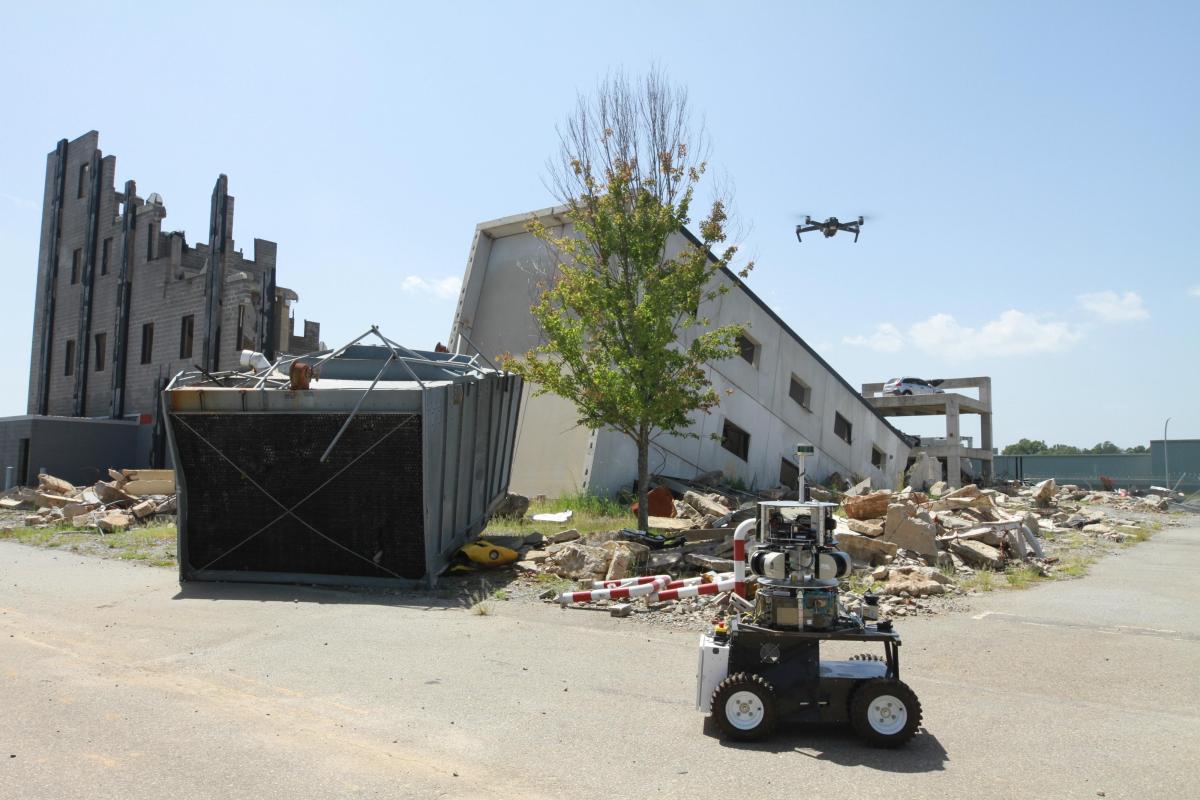
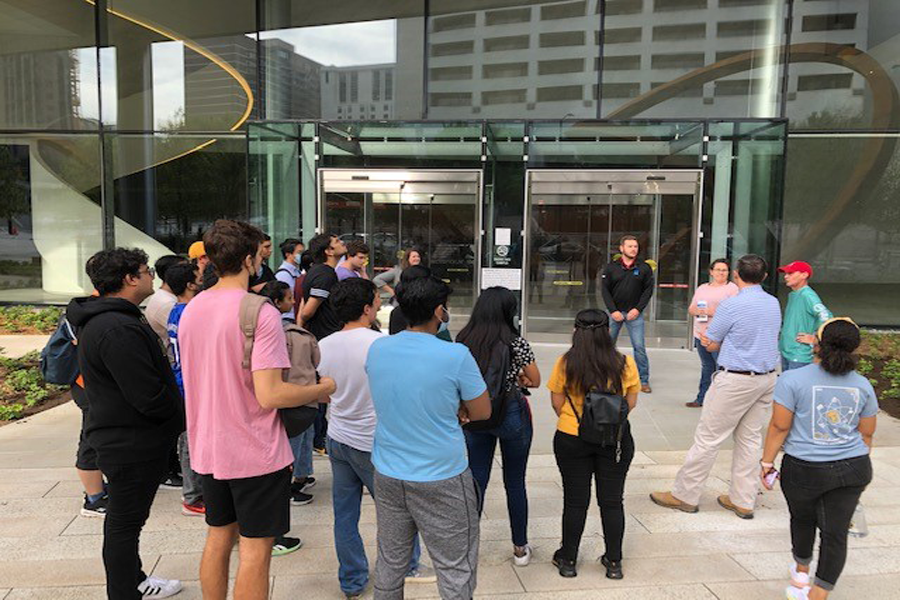
Focus your studies
Undergraduate students have two options to concentrate their civil engineering education around construction and infrastructure systems engineering. An optional track allows students to focus their electives to gain a deeper understanding of this discipline.
Students may also choose to pursue the CISE Concentration. After completing a set of required courses, students will earn an official transcript designation upon graduation. The concentration was developed with industry partners to prepare students with the skills they need for success in the construction industry. Within the CISE Concentration, students may select one of two tracks: Construction Engineering Management and Infrastructure Systems Engineering.
The are many opportunities for students to get involved beyond the classroom. Student organizations offer unique ways to learn about the many aspects of civil engineering. Construction and infrastructure systems engineering students might consider joining the American Society of Civil Engineers, the Construction Engineering Association or Engineers Without Borders.
Graduate programs in civil engineering are organized within the affinity groups. Students pursuing a master's degree or PhD can choose to affiliate with the Construction and Infrastructure Systems Engineering group for their educational and research activities. Graduate students work closely with faculty advisors throughout their studies and as they prepare a thesis. Browse the directory at the bottom of the page to get to know the faculty in this group and learn more about their research interests.
(text and background only visible when logged in)
Key Research Areas
- Construction information technology
- Robotics and automation in construction
- Robotic operation for disaster relief applications
- Human and robot interaction for construction applications
- Construction data modeling and visualization
- Knowledge management for decision support systems
- Smart, sustainable and resilient cities
- Infrastructure asset management
- Megacommunity-based planning for resilience
- Internet of things for construction worker safety improvement and productivity measurements
- Decision making under deep uncertainty (DMDU)
- Digital twinning
Facilities
- Robotics and Intelligent Construction Automation Lab (RICAL)
- Network Dynamics Lab
- Coda Building Computer Labs
- Center for Spatial Planning Analytics and Visualization
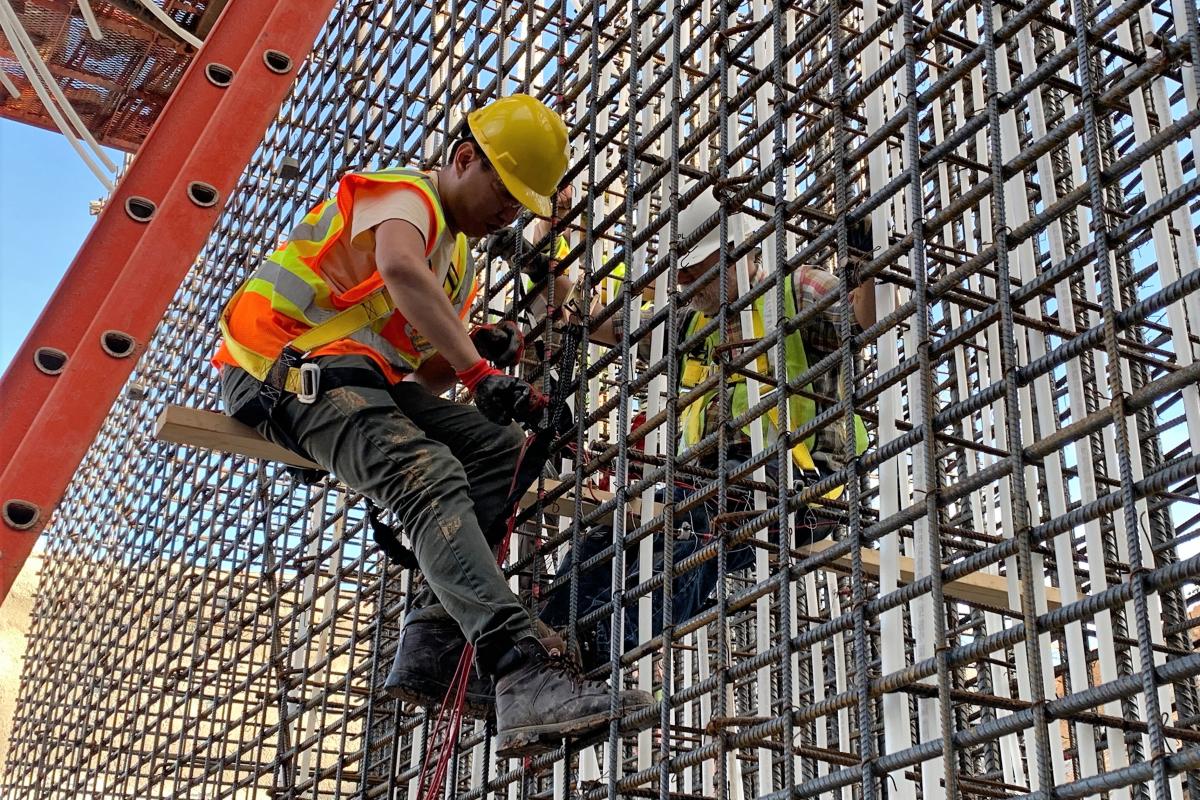
Construction and Infrastructure Systems Engineering Board
The Construction and Infrastructure Systems Engineering (CISE) Board provides guidance to administrators, faculty and students on the current needs of the construction industry. Members of this board also aid the School through industry networking, student curriculum, and advances in technology and innovation in construction engineering and management education at Georgia Tech.














